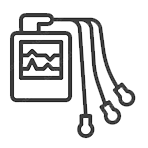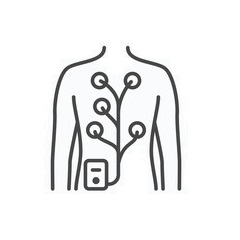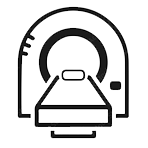Coronary Calcium Score
Q & A
Coronary artery disease
What is coronary artery disease?
Coronary artery disease is a cardiovascular disorder that affects the heart’s primary blood arteries. The most likely cause of coronary artery disease is the accumulation of cholesterol and other blood particles on the vessel walls. This sticky material, known as plaque, narrows the arteries and restricts blood flow. As a result, you may get chest discomfort and shortness of breath, and you may suffer a heart attack.What tests may be required to diagnose coronary artery disease?
Cardiac stress test
A cardiac stress test assesses your heart’s function throughout exercise. As with a regular ECG test, you wear electrodes that record your heart’s activity on an ECG monitor. The “stress” element comes from you exercising on a treadmill or stationary bicycle to elevate your heart rate. This test can uncover abnormalities that a typical ECG may otherwise miss. Similarly, an echocardiogram stress test is similar to a ECG stress test, except it employs ultrasound technology to provide precise images of your heart’s performance.Cardiac catheterization
Cardiac catheterization can both identify and treat coronary artery disease. The doctor inserts a long, thin tube, called catheter into an artery and guides it through the vessels to your heart. This catheter can be inserted in the groin or your arm. Through this tube, an image of the heart arteries, aka angiography, is produced by injecting dye through the arteries. Under X-ray imaging, the dye reveals places in which your arteries are narrowed or clogged.
What is the treatment for coronary artery disease?
The best therapy is to prevention and making the necessary lifestyle modifications to slow or avoid buildup of plaques that leads to coronary artery disease. Controlling risk factors such as obesity, cigarette smoking, elevated cholesterol, and lack of exercise can reverse a significant number of damages done.
You may also require medicine in the beginning phases to prevent blood from clotting and blocking an artery. From there, if the cholesterol is elevated, a cholesterol-lowering medication may be recommended.
For coronary artery disease, what interventions would I require?
If your arteries are severely obstructed, percutaneous coronary intervention (PCI) or coronary angioplasty may be required. A balloon is used to modify the narrowing in the artery and a stent may be used to compresses the plaque and widen the inside of the artery where the blood travels.What is coronary artery disease?
Coronary artery disease is a condition that occurs when plaque builds up in the arteries that bring oxygen-rich blood to your heart. Plaque is a fatty substance made of cholesterol, calcium, and other substances in the blood. This process is called hardening of the arteries, or atherosclerosis.___________below needs editing___________
What happens when you have coronary artery disease?
Plaque may narrow the coronary arteries. Narrowed arteries cause poor blood flow. This can lead to angina symptoms such as chest pain or discomfort. If blood flow is completely blocked, you could have a heart attack.
You can slow and reduce the risk of future problems by making changes in your lifestyle. These include quitting smoking and eating heart-healthy foods.
Treatment, along with changes in your lifestyle, can help you live a longer and healthier life.
How can you prevent coronary artery disease?
Do not smoke. It may be the best thing you can do to prevent coronary artery disease. If you need help quitting, talk to your doctor about stop-smoking programs and medicines. These can increase your chances of quitting for good.
Be active. Try to do moderate activity at least 2½ hours a week. Or try to do vigorous activity at least 1¼ hours a week. You may want to walk or try other activities, such as running, swimming, cycling, or playing tennis or team sports.
Eat heart-healthy foods. Eat more fruits and vegetables and less food that contains saturated and trans fats. Limit alcohol, sodium, and sweets.
Stay at a healthy weight. Lose weight if you need to.
Manage other health problems such as diabetes, high blood pressure, and high cholesterol.
How is coronary artery disease treated?
Your doctor will suggest that you make lifestyle changes. For example, your doctor may ask you to eat healthy foods, quit smoking, lose extra weight, and be more active.
You will take medicines that help prevent a heart attack.
Your doctor may suggest a procedure to open narrowed or blocked arteries. This is called angioplasty. Or your doctor may suggest using healthy blood vessels to create detours around narrowed or blocked arteries. This is called bypass surgery.










